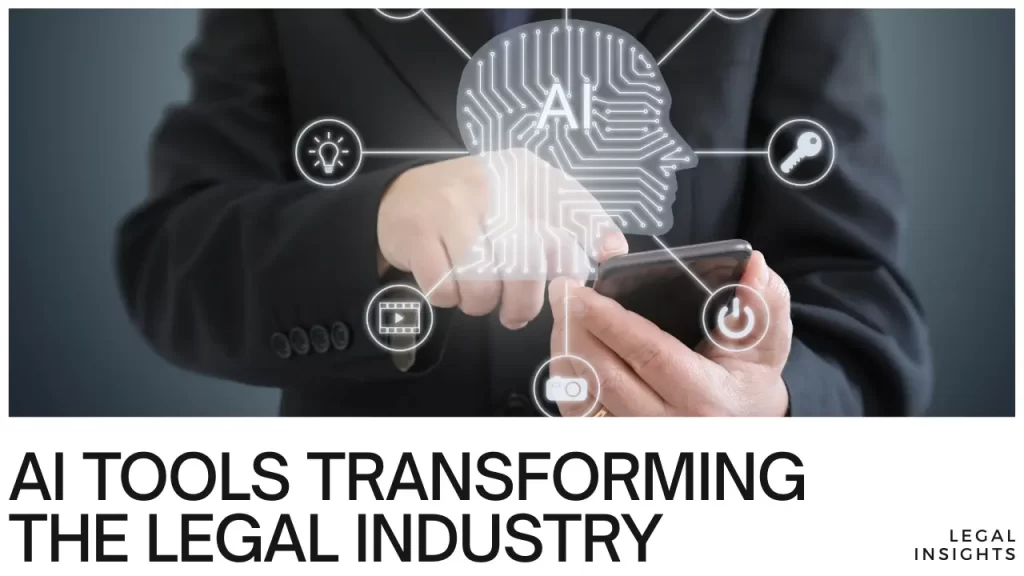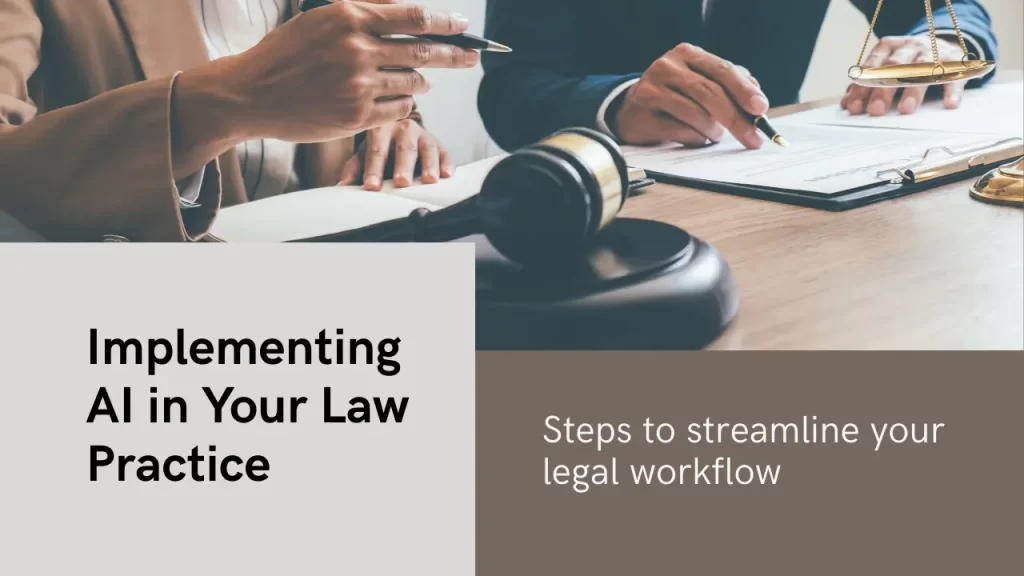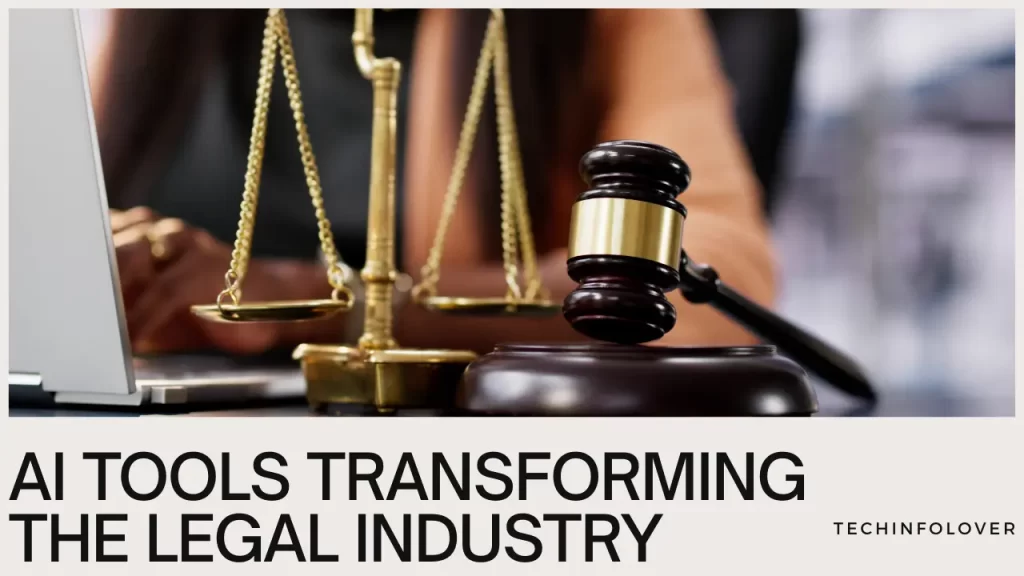Introduction
The legal industry is traditionally known for its reliance on manual labor, paper-intensive workflows, and rigid processes. However, in the last decade—and especially in the post-COVID era—the rise of AI tools for legal industry has led to a paradigm shift in how law is practiced and delivered.
Today, AI tools for the legal industry are revolutionizing everything from legal research to contract analysis and litigation strategy. These technologies are not just improving efficiency; they are redefining what it means to practice law in the 21st century.
Main Objective: This comprehensive guide explores how AI tools are being applied across the legal sector, highlights top solutions available in 2025, and provides actionable insights on integrating AI in law firms and corporate legal departments.

What Are AI Tools in the Legal Industry?
AI tools in law refer to software platforms and digital solutions that utilize artificial intelligence—primarily machine learning (ML), natural language processing (NLP), and data analytics—to perform or assist with legal tasks that traditionally required human intelligence.
These tools are designed to:
- Analyze large volumes of legal documents quickly
- Automate routine and repetitive legal processes
- Extract meaningful insights from complex data
- Enhance legal research and discovery
- Improve client interaction through virtual assistants
Unlike traditional legal software, AI tools continuously learn from data and user interactions, making them smarter and more efficient over time.
Key Benefits of Using AI in Legal Work
1. Increased Efficiency
AI accelerates time-consuming tasks such as legal research and document review. Tasks that once took days can now be completed in hours or even minutes.
2. Enhanced Accuracy
By minimizing human error and providing consistent analysis, AI tools can help lawyers avoid oversight and enhance the quality of legal advice.
3. Cost Reduction
AI enables law firms to reduce billable hours spent on low-value work, translating into cost savings for both the firm and the client.
4. Predictive Insights
AI can analyze historical data and predict outcomes for litigation or contract risks, helping attorneys strategize with greater confidence.
5. Scalability
Whether it’s a solo practice or a global firm, AI tools scale efficiently to accommodate workloads of varying complexity and volume.
Most Common Use Cases of AI Tools in Legal Industry
1. Legal Research
AI-powered research tools use NLP to understand queries in plain English, pulling relevant case laws, statutes, and legal opinions from massive databases.
Example: Instead of using keyword-based searches, lawyers can ask, “What are the recent Supreme Court rulings on non-compete clauses in California?” and get precise results.
2. Contract Analysis and Review
AI tools extract key terms, identify risk clauses, compare contract versions, and flag inconsistencies in seconds.
Use Case: M&A deals, lease agreements, vendor contracts, and employment agreements.
3. E-Discovery
AI sifts through thousands of digital documents—including emails, texts, and files—to find relevant information for litigation.
Example: Identifying keywords, communication patterns, and relationships between parties in a fraud investigation.
4. Litigation Prediction
Some AI platforms assess past legal outcomes, judge history, and case specifics to forecast probable case results.
Example: Predicting a judge’s ruling behavior or a likely settlement amount.
5. Chatbots and Virtual Legal Assistants
AI chatbots handle routine queries, help clients schedule consultations, and provide basic legal advice, increasing availability without added staff.
Example: DoNotPay provides automated guidance for small claims, parking tickets, and subscription cancellations.
6. Compliance and Regulatory Monitoring
AI keeps legal teams up to date by scanning regulatory changes and alerting teams to potential non-compliance.
Example: GDPR or HIPAA compliance monitoring in real-time.
Leading AI Tools for the Legal Industry in 2025
Below is a list of some of the most trusted and widely used AI-powered legal tools categorized by functionality:
| Tool Name | Primary Use Case | Key Features | Ideal For |
|---|---|---|---|
| ROSS Intelligence | Legal Research | NLP-based case law retrieval | Law firms, solo practitioners |
| Casetext CoCounsel | Research + Drafting | Built on GPT-4, offers legal memo generation, brief analysis | Legal teams, research-focused firms |
| Kira Systems | Contract Review | Clause extraction, risk analysis | M&A, law departments |
| Luminance | Due Diligence | Unsupervised ML for document review | Corporate legal teams, compliance officers |
| LawGeex | Contract Approval Automation | Clause benchmarking, compliance scoring | Procurement, HR, in-house legal |
| DoNotPay | Consumer Legal Help | AI chatbot for basic legal tasks | Individuals, small businesses |
| Lexis+ AI | Legal Analytics | Case analysis, judge history, data visualization | Litigation and appellate lawyers |
Real-World Applications of AI in Law Firms
Case Study: Contract Lifecycle Management
A global consulting firm used LawGeex to review NDAs. What took 45 minutes per document manually was reduced to under 5 minutes with 94% accuracy—saving over 2,000 hours annually.
Case Study: Predicting Case Outcomes
A litigation team used Lexis+ AI to assess over 300 historical decisions involving a specific judge. The AI predicted a 72% chance of dismissal, influencing their settlement strategy—and they won.
Case Study: Enhancing Access to Justice
DoNotPay helped over 150,000 people contest parking tickets, resolve small claims, and cancel unwanted subscriptions, making legal aid accessible and affordable.
Legal Job Roles Enhanced by AI Tools
For Lawyers:
- AI handles document prep, research, and risk analysis.
- Lawyers can focus more on strategic advice and client advocacy.
For Paralegals:
- Workflow shifts to data curation, training AI models, and interpreting results.
For Legal Operations:
- AI helps monitor KPIs, track billing trends, and manage contract pipelines.
For Law Students:
- AI-based research platforms help students access digestible legal summaries and case studies.
Potential Risks and Ethical Challenges
1. Data Privacy Concerns
Sensitive client data must be protected. AI vendors must comply with GDPR, CCPA, HIPAA, and other privacy laws.
2. Bias in Algorithms
If AI is trained on biased datasets (e.g., historically biased court decisions), it can perpetuate systemic injustices.
3. Overdependence on Automation
AI should assist—not replace—legal judgment. Blind reliance may lead to poor decisions.
4. Lack of Regulation
AI in law is advancing faster than legal frameworks can govern it, creating uncertainty around liability, bias, and ethics.

Steps to Implement AI in a Law Practice
Step 1: Conduct a Tech Readiness Audit
Identify the firm’s digital maturity level, data availability, and current pain points.
Step 2: Define Use Cases
Start with high-impact, low-risk areas like document review, research, or client intake.
Step 3: Shortlist Vendors
Choose AI tools with proven legal domain expertise, security certifications, and customer support.
Step 4: Train Legal Staff
Invest in continuous training to help attorneys and staff effectively use new technologies.
Step 5: Monitor and Evaluate
Set KPIs (accuracy, speed, client satisfaction) and evaluate tool performance quarterly.
FAQ Section
What are AI tools used for in the legal field?
AI tools are used for legal research, document review, contract analysis, case prediction, compliance tracking, and client support via chatbots.
Which AI tool is best for legal research?
ROSS Intelligence and Casetext CoCounsel are top choices for natural language legal research and drafting assistance.
Can AI replace lawyers?
No. AI enhances legal work by handling routine tasks, but human judgment, negotiation, and ethics are irreplaceable.
How secure are legal AI tools?
Reputable legal AI vendors use encryption, secure cloud environments, and comply with international data privacy regulations like GDPR and CCPA.
Are AI tools affordable for small law firms?
Yes. Many platforms like DoNotPay and Casetext offer subscription models or free trials suitable for solo lawyers and small practices.
Future of AI in the Legal Industry
Generative AI Drafting Tools
Platforms like GPT-5 will allow full legal briefs, memos, and contracts to be drafted from prompts.
AI + Blockchain Contracts
Smart contracts will become self-executing, automatically enforcing legal terms via code.
Predictive Regulation
AI will track and analyze proposed legislation and regulatory trends, warning firms about upcoming compliance risks.
AI-Powered Jury Selection
In jurisdictions where allowed, AI will help lawyers select jurors based on psychology and prior rulings.
Conclusion
AI is not here to replace legal professionals—it’s here to empower them. By embracing AI tools, legal teams can deliver faster, more accurate, and more strategic services to clients.
Whether you’re in a solo practice or part of a multinational firm, integrating AI tools for the legal industry will future-proof your operations, reduce risk, and enhance client outcomes.

